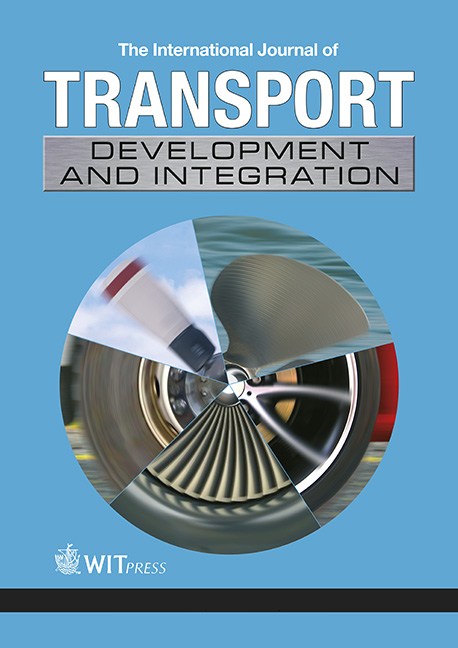International perspectives on transportation and urban form integration
Price
Free (open access)
Volume
Volume 1 (2017), Issue 1
Pages
14
Page Range
1 - 15
Paper DOI
10.2495/TDI-V1-N1-1-15
Copyright
WIT Press
Author(s)
C.B. Schoeman
Abstract
The debate of transportation and urban form integration has been reported on by several authors since the early 1960s. However, in 2015, the challenges were much more dynamic, diverse and complex. From research undertaken it is evident that the approach to integration is determined by the disciplinary focus of the researcher and/or practitioner and the research methodology used and is closely related to the conditions (case study research) prevailing within a specific spatial system (countries).
This article is an endeavour to assess and evaluate different integration approaches and outcomes de duced from existing research and case studies by critically evaluating its point of departure, approaches and practices applied in various spatial systems (international perspectives) and more specifically by the disciplines involved in this discourse. It includes the theoretical founding and related empirical research considerations where this phenomenon is an important focus in transportation planning and spatial integration in promoting and attaining sustainable development and urban resilience.
The process is, however, dependent on the relationship between the principles underpinning this research theme. There is a co-dependence between transportation and urban form. This co-dependency is, however, being complicated by decision making and the environmental reality that needs to be factored into this reality.
The outcome of the article will focus on isolating international guiding principles from an integration perspective in promoting sustainable development and resilience in spatial systems. It will include strategic directions and decision-making processes inclusive of environmental considerations, optimizing urban form and land-use planning (patterns), related impacts, accessibility, modal integration, transportation network development and energy and pollution influences, effects and implications. The need for trans-disciplinary practices and application of strategic approaches in integrating planning, development and operational-level interfaces within urban spatial systems will be demonstrated.
The use and application of modelling and simulation techniques are becoming more important as an instrument to guide and measure the attainment of higher levels of integration and sustainability. Transportation and spatial development integration paradigms are dependent on the application of technology that is measureable for all spatial development scenarios in terms of effects, progress, implications and pre-conditions to enhance integration.
Keywords
Integration, land uses, network planning, spatial systems planning, transportation, urban form.




